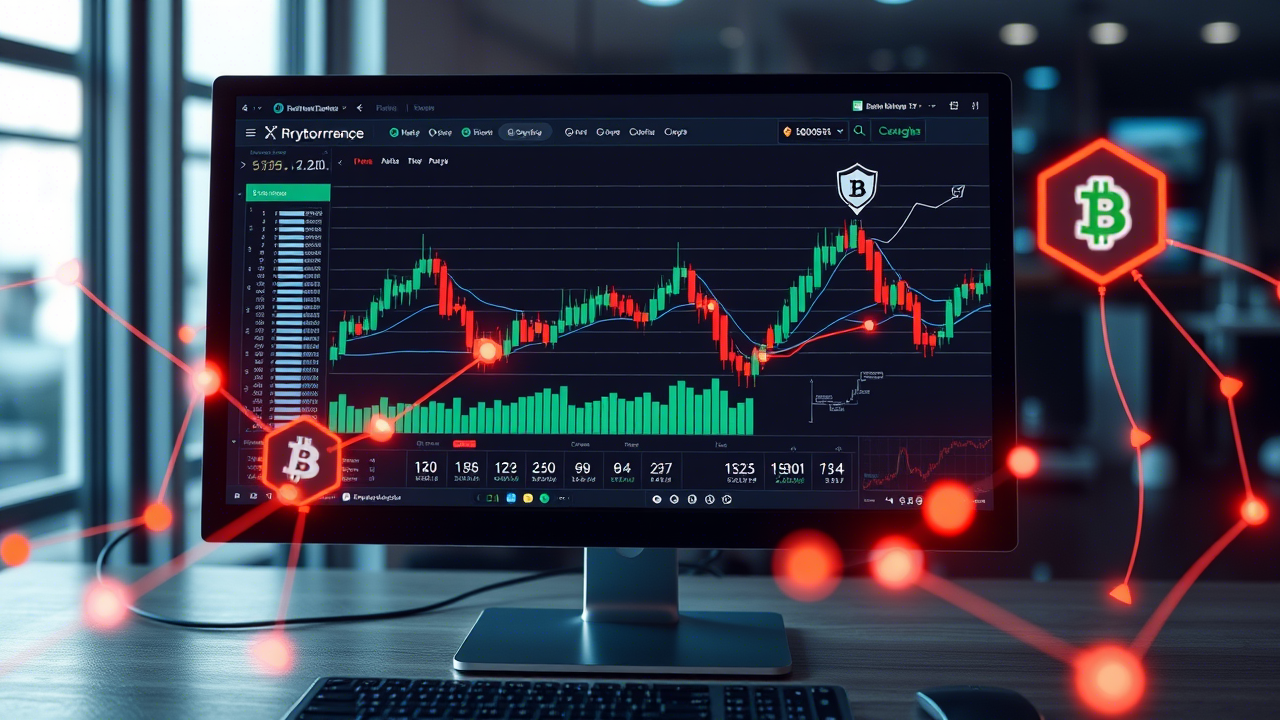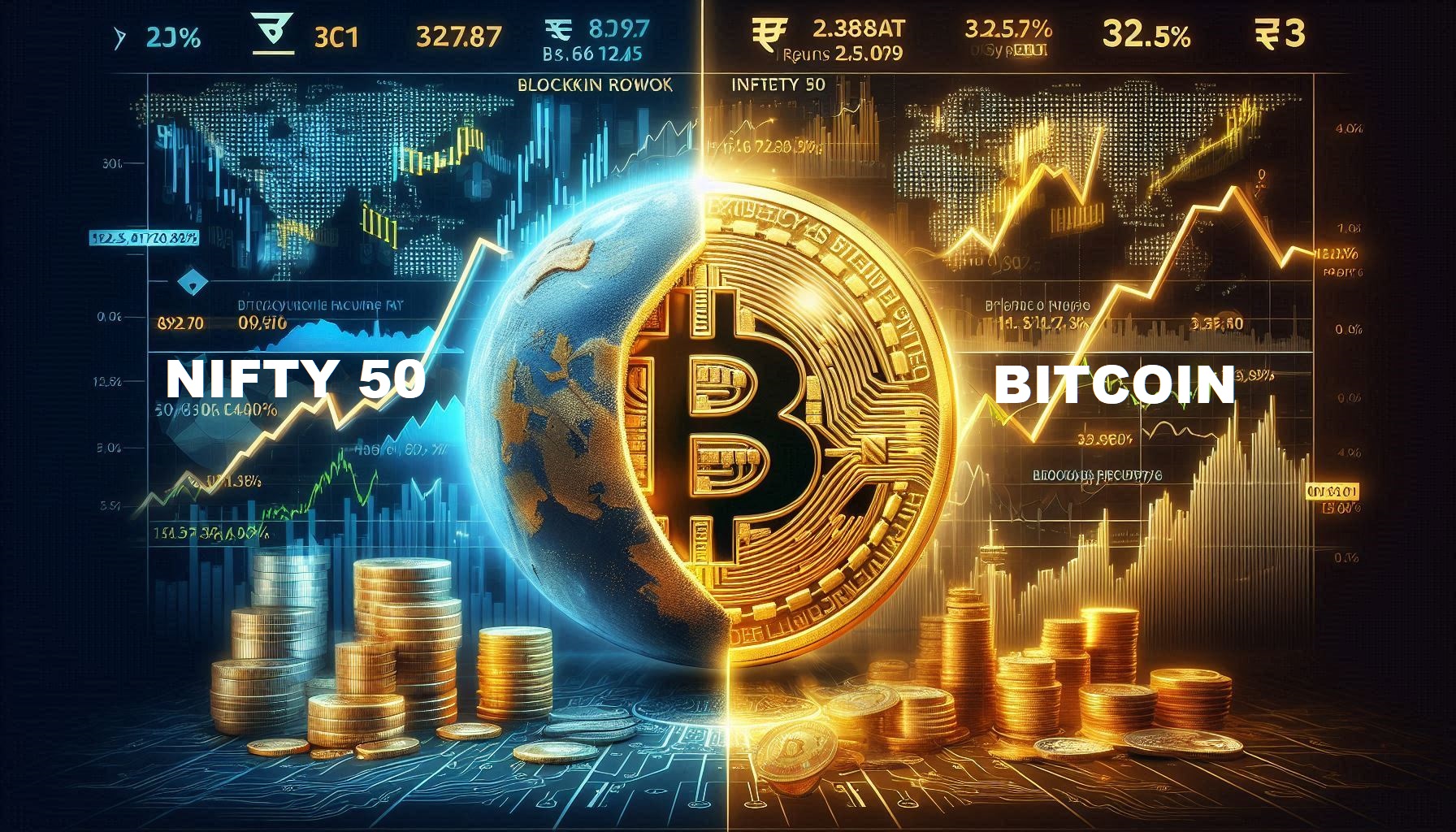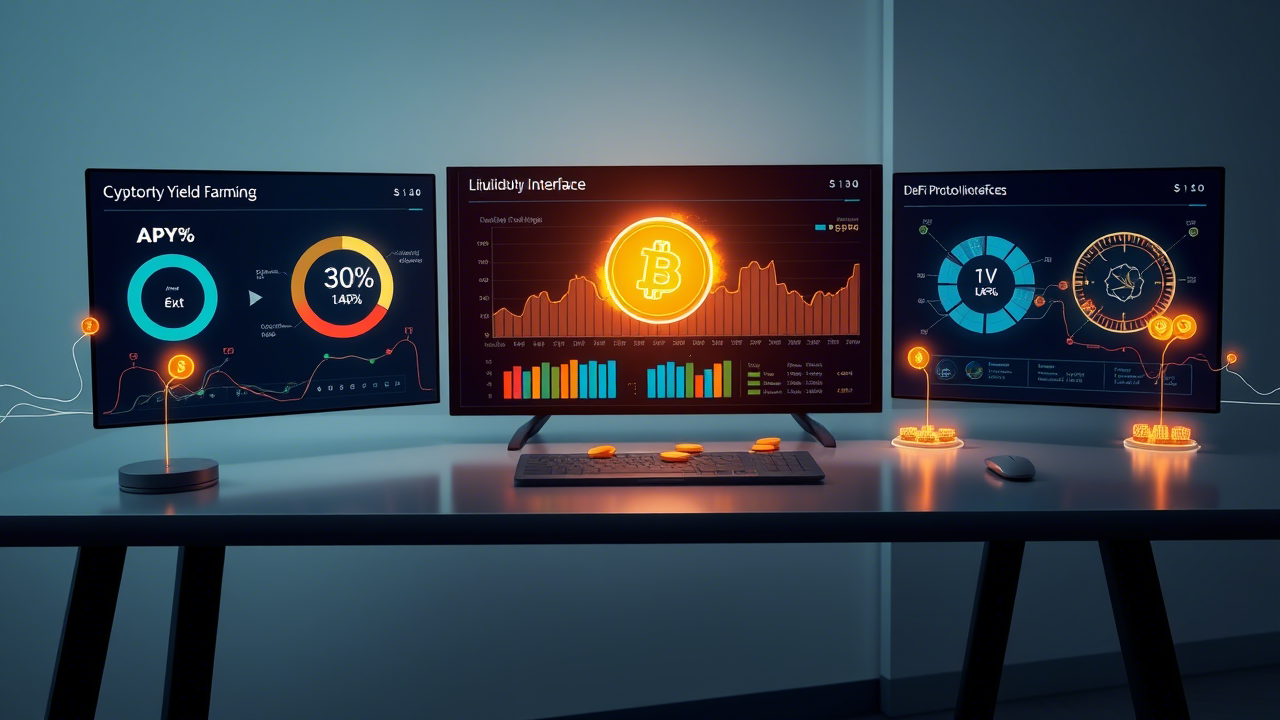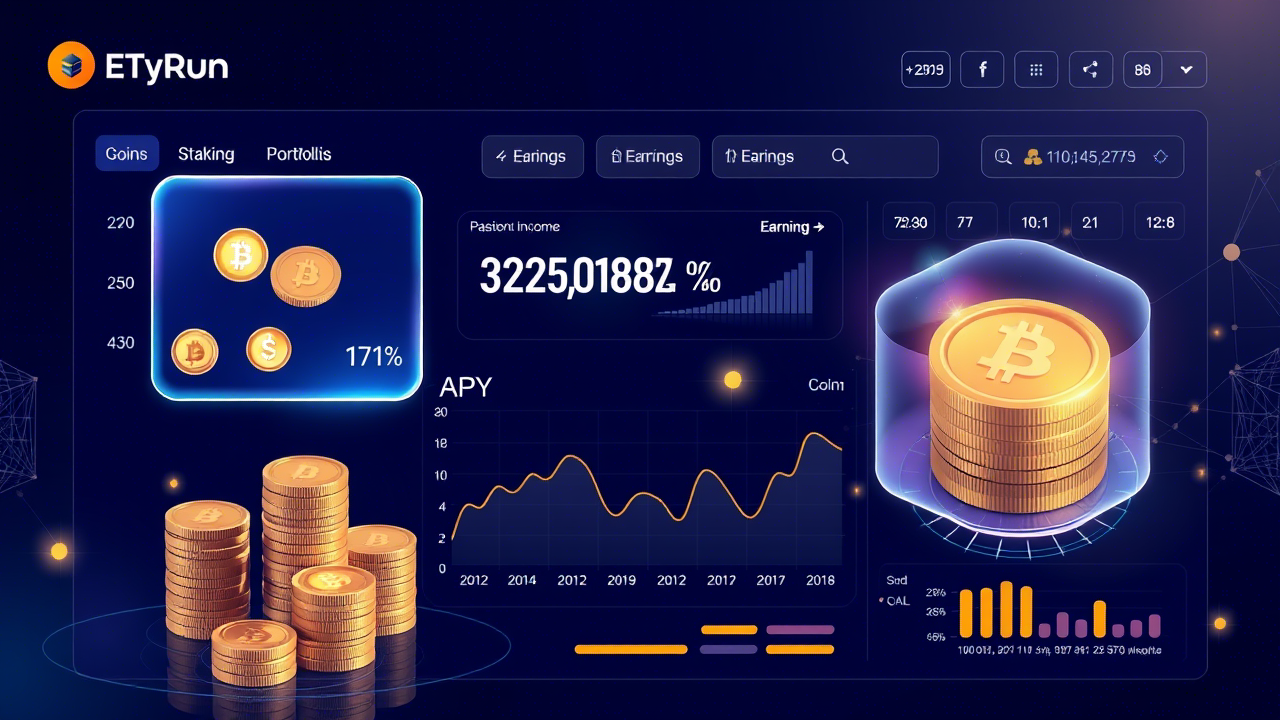The cryptocurrency landscape has evolved dramatically over the past few years, with decentralized exchange emerging as a revolutionary force in digital asset trading. Unlike traditional centralized platforms, these innovative trading systems operate without intermediaries, giving users complete control over their funds while maintaining privacy and security.
Understanding decentralized exchange becomes crucial as the DeFi ecosystem continues to expand. These platforms have processed billions of dollars in trading volume, demonstrating their growing importance in the cryptocurrency market. Whether you’re a beginner exploring cryptocurrency for beginners or an experienced trader seeking alternatives to centralized platforms, this comprehensive guide will help you navigate the world of decentralized trading.
What is Decentralized Exchange?
A decentralized exchange (DEX) represents a peer-to-peer marketplace where cryptocurrency traders can execute transactions directly with each other without relying on centralized intermediaries. These platforms operate on blockchain networks, utilizing smart contracts to facilitate trades automatically and securely.
The fundamental difference between decentralized and centralized exchanges lies in custody and control. Traditional exchanges hold your funds in their wallets, requiring you to trust them with your assets. Decentralized exchanges, however, allow you to maintain custody of your cryptocurrencies throughout the entire trading process.
Key Features of Decentralized Exchanges
Non-Custodial Trading: Users retain full control of their private keys and funds. This eliminates counterparty risk associated with centralized platforms that might face security breaches or regulatory issues.
Permissionless Access: Anyone with a compatible wallet can access DEX platforms without completing lengthy verification processes or providing personal information.
Global Availability: Decentralized exchanges operate 24/7 without geographical restrictions, making them accessible to users worldwide regardless of local regulations.
Transparency: All transactions occur on public blockchains, ensuring complete transparency and auditability of trading activities.
Understanding Decentralized Exchange Meaning
The decentralized exchange meaning extends beyond simple trading platforms. These systems represent a fundamental shift toward financial sovereignty and user empowerment. By eliminating intermediaries, DEXs embody the core principles of blockchain technology – decentralization, transparency, and trustlessness.
Traditional financial systems rely on trusted third parties to facilitate transactions. Decentralized exchanges replace this trust with cryptographic protocols and smart contracts that execute trades automatically when predetermined conditions are met. This innovation reduces costs, increases efficiency, and eliminates single points of failure.
How Decentralized Exchanges Work
Decentralized exchanges primarily operate using two mechanisms: order books and automated market makers (AMMs). Order book DEXs function similarly to traditional exchanges, matching buy and sell orders from different users. However, AMM-based platforms use liquidity pools and mathematical formulas to determine asset prices and facilitate trades.
Liquidity providers contribute their cryptocurrencies to these pools, earning fees from trades that occur within their contributed pools. This system ensures continuous liquidity and enables instant trades without requiring direct counterparties.
Top Decentralized Exchanges by Volume
The decentralized exchange landscape features several prominent platforms that have gained significant traction among cryptocurrency traders. These platforms demonstrate varying approaches to decentralized trading while maintaining core principles of user control and transparency.
Leading DEX Platforms
Uniswap stands as the pioneer of automated market maker protocols, operating on the Ethereum blockchain. Its simple interface and extensive token support have made it the most widely used decentralized exchange by volume.
PancakeSwap operates on the Binance Smart Chain, offering lower transaction fees compared to Ethereum-based platforms. Its native token rewards and yield farming opportunities attract traders seeking additional earning potential.
SushiSwap emerged as a community-driven fork of Uniswap, introducing additional features like yield farming and governance tokens. Its multi-chain approach supports trading across different blockchain networks.
Curve Finance specializes in stablecoin trading and low-slippage exchanges between similar assets. Its unique bonding curve algorithm optimizes trades for assets with minimal price differences.
What are the Top 3 Decentralized Exchanges?
Based on trading volume, user adoption, and ecosystem development, the top three decentralized exchanges currently include:
Uniswap Protocol
Uniswap maintains its position as the leading decentralized exchange through continuous innovation and user-friendly design. Its V3 iteration introduced concentrated liquidity, allowing liquidity providers to earn higher returns by focusing their capital within specific price ranges.
The platform supports thousands of ERC-20 tokens and facilitates billions of dollars in monthly trading volume. Its governance token, UNI, enables community participation in protocol development decisions.
PancakeSwap Exchange
PancakeSwap has captured significant market share by offering affordable trading on the Binance Smart Chain. Lower gas fees make it particularly attractive for smaller trades that might be uneconomical on Ethereum-based platforms.
The platform combines decentralized trading with gamification elements, including NFT collections and prediction markets that enhance user engagement beyond simple trading activities.
Curve Finance Protocol
Curve Finance has established itself as the premier platform for stablecoin and similar asset trading. Its specialized algorithms minimize slippage for trades between assets with similar values, making it ideal for large transactions between stablecoins or different versions of the same asset.
The platform’s innovative tokenomics and governance model have created a loyal community of users who actively participate in protocol governance and earn rewards through various mechanisms.
Best Decentralized Exchange Features
Selecting the best decentralized exchange depends on your specific trading needs, preferred blockchain networks, and risk tolerance. Several factors differentiate top-tier platforms from lesser alternatives.
Security and Audit History
Reputable decentralized exchanges undergo regular security audits by established blockchain security firms. These audits identify potential vulnerabilities in smart contracts and ensure protocol safety. Users should prioritize platforms with clean audit histories and transparent security practices.
Liquidity and Trading Volume
Higher liquidity ensures better price discovery and reduced slippage for trades. Platforms with deeper liquidity pools can accommodate larger trades without significant price impact, making them suitable for both retail and institutional traders.
User Interface and Experience
While decentralized exchanges operate on complex blockchain protocols, the best platforms provide intuitive interfaces that simplify the trading process. Clear navigation, real-time price feeds, and educational resources enhance the overall user experience.
Token Support and Cross-Chain Compatibility
Leading decentralized exchanges support extensive token lists and offer cross-chain trading capabilities. This flexibility allows users to access diverse investment opportunities without switching between multiple platforms.
Is Trading on DEX Safe?
Trading on decentralized exchanges involves both unique advantages and specific risks that users must understand. While DEXs eliminate certain risks associated with centralized platforms, they introduce new considerations that require careful attention.
Security Advantages
No Custody Risk: Since users maintain control of their private keys, they’re not vulnerable to exchange hacks that might compromise centralized platform user funds.
Transparent Operations: All transactions occur on public blockchains, allowing users to verify platform operations and audit smart contract behavior.
Reduced Counterparty Risk: Smart contracts automatically execute trades without requiring trust in human intermediaries or corporate entities.
Potential Risks and Mitigation
Smart Contract Vulnerabilities: Bugs in smart contract code could potentially be exploited by malicious actors. Users should research platform audit histories and start with smaller amounts when trying new protocols.
Impermanent Loss: Liquidity providers face the risk of impermanent loss when token prices diverge significantly from their initial ratios. Understanding this concept is crucial before providing liquidity to any platform.
Slippage and MEV: Large trades might experience significant slippage, and users could fall victim to maximal extractable value (MEV) attacks. Using limit orders and reputable platforms helps minimize these risks.
Decentralized Exchange in India
The Indian cryptocurrency market has shown increasing interest in decentralized exchanges as regulatory clarity improves and user awareness grows. Indian traders are discovering the benefits of non-custodial trading platforms that operate independently of traditional financial systems.
Regulatory Landscape
While India has implemented cryptocurrency taxation and reporting requirements, decentralized exchanges operate in a relatively neutral regulatory environment. Users must still comply with tax obligations on their trading profits, but the decentralized nature of these platforms provides additional privacy and autonomy.
Popular Platforms Among Indian Users
Indian cryptocurrency enthusiasts commonly use international DEX platforms like Uniswap, PancakeSwap, and SushiSwap. These platforms don’t require KYC verification, making them accessible to users regardless of their location or local banking restrictions.
Local Adoption Considerations
Indian users should consider transaction costs when choosing between different blockchain networks. Ethereum-based DEXs might have higher gas fees during network congestion, while alternatives like Polygon or Binance Smart Chain offer more affordable trading options.
Understanding crypto trading strategies becomes particularly important for Indian users navigating the complex landscape of decentralized trading while managing tax implications and market volatility.
List of Decentralized Exchange
The decentralized exchange ecosystem encompasses hundreds of platforms across multiple blockchain networks. Each platform offers unique features, supported tokens, and trading mechanisms that cater to different user preferences and requirements.
Ethereum-Based Platforms
Uniswap: The most popular AMM-based DEX with extensive token support and high liquidity across multiple trading pairs.
SushiSwap: Community-driven platform offering additional features like yield farming and cross-chain trading capabilities.
Balancer: Automated portfolio manager and price sensor that allows custom token weightings in liquidity pools.
Kyber Network: Liquidity aggregator that sources the best prices across multiple DEXs and liquidity sources.
Multi-Chain and Alternative Networks
PancakeSwap: Leading DEX on Binance Smart Chain with lower fees and gamified features.
QuickSwap: Polygon-based DEX offering fast and cheap transactions with extensive DeFi integrations.
TraderJoe: Avalanche ecosystem DEX with innovative features like liquidity book and yield farming opportunities.
SpookySwap: Fantom network DEX with unique tokenomics and community-driven development.
Decentralized Exchange Crypto List
Different decentralized exchanges support varying ranges of cryptocurrencies and tokens. Understanding which platforms offer access to your preferred assets is crucial for effective trading and investment strategies.
Major Cryptocurrency Support
Most established DEXs support major cryptocurrencies through wrapped versions or native tokens. Bitcoin, Ethereum, and other top cryptocurrencies are typically available across multiple platforms, though trading pairs and liquidity might vary significantly.
Altcoin and Token Availability
Decentralized exchanges excel at providing access to newer tokens and altcoins that might not be listed on centralized exchanges. This early access can provide investment opportunities but also increases risk exposure to unproven projects.
Token Verification and Due Diligence
The permissionless nature of DEXs means anyone can create and list tokens. Users must perform their own research and due diligence before trading unfamiliar tokens. Verified token lists and community feedback help identify legitimate projects from potential scams.
When exploring altcoins trading guide, users should understand the additional risks and opportunities present in decentralized trading environments.
Decentralized Wallet Integration
Successful DEX trading requires compatible wallet integration that supports the underlying blockchain networks. Understanding wallet options and security practices is essential for safe and effective decentralized trading.
Popular Wallet Options
MetaMask: The most widely used browser extension wallet that supports Ethereum and EVM-compatible networks. Its user-friendly interface makes it ideal for beginners entering the DEX ecosystem.
Trust Wallet: Mobile-focused wallet that supports multiple blockchain networks and provides built-in DEX access through WalletConnect integration.
Ledger Hardware Wallets: Cold storage solutions that can connect to DEX platforms while maintaining the highest security standards for private key management.
Wallet Security Best Practices
Private Key Management: Never share your private keys or seed phrases with anyone. Store backup phrases securely offline and consider using hardware wallets for significant holdings.
Transaction Verification: Always verify transaction details before confirming trades. Double-check recipient addresses, amounts, and gas fees to prevent costly mistakes.
Regular Updates: Keep wallet software updated to benefit from security improvements and new feature additions.
Proper crypto wallet management becomes even more critical when using decentralized exchanges since users bear full responsibility for their fund security.
Decentralized Exchange App Options
Mobile access to decentralized exchanges has improved significantly with dedicated applications and mobile-optimized web interfaces. These solutions enable trading flexibility and portfolio management from anywhere.
Native Mobile Applications
Several DEX platforms have developed dedicated mobile applications that provide full trading functionality optimized for smartphone and tablet use. These apps typically offer features like price alerts, portfolio tracking, and simplified trading interfaces.
Web-Based Mobile Solutions
Many decentralized exchanges prioritize responsive web design that works effectively on mobile devices. These solutions don’t require app downloads but provide comparable functionality through mobile web browsers.
Mobile Wallet Integration
Mobile wallets with built-in DEX integration offer seamless trading experiences without switching between multiple applications. These integrated solutions often provide the most user-friendly experience for mobile traders.
Advanced DEX Trading Strategies
Sophisticated traders can employ various strategies to maximize returns and minimize risks when using decentralized exchanges. These approaches require deeper understanding of DeFi protocols and market mechanics.
Liquidity Provision Strategies
Providing liquidity to DEX platforms can generate passive income through trading fees. However, successful liquidity provision requires understanding impermanent loss, optimal price ranges, and market dynamics.
Arbitrage Opportunities
Price differences between DEXs and centralized exchanges create arbitrage opportunities for traders with sufficient capital and technical knowledge. Automated trading bots can exploit these differences, though competition is intense.
Yield Farming and Staking
Many DEX platforms offer additional rewards through yield farming programs and governance token staking. These opportunities can enhance returns but introduce additional risks related to token price volatility and protocol changes.
Risk Management for DEX Trading
Effective risk management becomes crucial when trading on decentralized exchanges due to the increased responsibility users bear for their funds and trading decisions.
Position Sizing and Diversification
Never invest more than you can afford to lose in any single trade or platform. Diversifying across multiple DEXs and blockchain networks reduces exposure to protocol-specific risks.
Smart Contract Risk Assessment
Research platform audit histories and security practices before committing significant funds. Start with smaller amounts when testing new protocols or trading strategies.
Market Risk Considerations
Decentralized exchanges often experience higher volatility and slippage compared to centralized platforms. Use limit orders and understand market conditions before executing large trades.
Understanding crypto market cycles helps traders make informed decisions about when to enter or exit positions on decentralized exchanges.
Future of Decentralized Exchanges
The decentralized exchange landscape continues evolving rapidly with new innovations, improved user experiences, and expanding cross-chain capabilities. Several trends are shaping the future development of DEX platforms.
Layer 2 Integration
Ethereum layer 2 solutions like Arbitrum, Optimism, and Polygon are becoming increasingly important for DEX operations. These scaling solutions reduce transaction costs while maintaining security and decentralization benefits.
Cross-Chain Interoperability
Future DEX platforms will likely provide seamless trading across multiple blockchain networks without requiring users to manually bridge assets or switch network connections.
Institutional Adoption
As regulatory clarity improves and institutional demand grows, decentralized exchanges are developing features and compliance tools to serve professional traders and institutional clients.
Enhanced User Experience
Future DEX platforms will continue improving user interfaces, reducing technical complexity, and providing educational resources to make decentralized trading accessible to mainstream users.
Common DEX Trading Mistakes
New users often make predictable mistakes when first using decentralized exchanges. Understanding these common pitfalls helps traders avoid costly errors and develop better trading practices.
Insufficient Gas Fee Planning
Ethereum network congestion can cause gas fees to spike unexpectedly, making trades uneconomical or causing transactions to fail. Monitor network conditions and set appropriate gas prices to ensure transaction success.
Ignoring Slippage Settings
High slippage tolerance can result in significantly worse trade execution, while low tolerance might cause transactions to fail in volatile markets. Understand optimal slippage settings for different market conditions.
Lack of Due Diligence
The permissionless nature of DEXs means scam tokens and rug pulls are more common. Always research tokens thoroughly before trading and be especially cautious with new or unknown projects.
Poor Wallet Security
Using hot wallets for large amounts or failing to secure private keys properly can result in permanent fund loss. Implement appropriate security measures based on your trading volume and risk tolerance.
Comparing DEX vs CEX Trading
Understanding the differences between decentralized and centralized exchanges helps traders choose the most appropriate platform for their specific needs and trading strategies.
Advantages of DEX Trading
Self-Custody: Users maintain complete control over their funds throughout the trading process.
Privacy: No KYC requirements or personal information sharing with third parties.
Global Access: Available worldwide without geographical restrictions or account limitations.
Transparency: All transactions are publicly auditable on blockchain networks.
Centralized Exchange Benefits
User-Friendly Interfaces: Generally more intuitive for beginners with familiar order book interfaces.
Customer Support: Dedicated support teams to help resolve issues and answer questions.
Higher Liquidity: Typically offer deeper liquidity pools for major trading pairs.
Advanced Features: Professional trading tools like margin trading, futures, and options.
When considering best crypto exchanges in India, users should evaluate both centralized and decentralized options based on their specific requirements and risk tolerance.
FAQ
What makes decentralized exchange different from regular crypto exchanges?
Decentralized exchanges operate without intermediaries, allowing users to maintain custody of their funds while trading directly with other users through smart contracts. Regular exchanges hold user funds and facilitate trades through centralized order books.
Do I need to complete KYC verification to use decentralized exchange?
No, decentralized exchanges typically don’t require KYC verification or personal information. Users can access these platforms with just a compatible cryptocurrency wallet and internet connection.
Can I lose money due to smart contract bugs on DEX platforms?
Yes, smart contract vulnerabilities can potentially result in fund loss. However, reputable platforms undergo regular security audits and have established track records of safe operation. Users should research platform security before trading.
How do transaction fees work on decentralized exchange?
Transaction fees include both blockchain network fees (gas fees) and platform trading fees. Network fees vary based on blockchain congestion, while platform fees are typically percentage-based on trade volume.
What is impermanent loss and how does it affect liquidity providers?
Impermanent loss occurs when token prices in a liquidity pool diverge from their initial ratio, potentially resulting in lower returns compared to simply holding the tokens. This risk primarily affects liquidity providers rather than regular traders.
Are decentralized exchanges legal in India?
While specific regulations are still evolving, using decentralized exchanges is not explicitly prohibited in India. Users must comply with tax reporting requirements on their trading profits and capital gains.
Which blockchain networks support the most decentralized exchanges?
Ethereum hosts the largest number of DEX platforms, followed by Binance Smart Chain, Polygon, and Avalanche. Each network offers different advantages in terms of fees, speed, and token availability.
How do I choose the best decentralized exchange for my needs?
Consider factors like supported tokens, trading fees, liquidity depth, security audit history, and blockchain network preferences. Start with smaller amounts when testing new platforms to evaluate their suitability.
Final Thought
Decentralized exchanges represent a fundamental shift toward financial sovereignty and user empowerment in the cryptocurrency ecosystem. While these platforms offer unprecedented control and transparency, they also require users to take greater responsibility for their fund security and trading decisions.
The DEX landscape continues evolving rapidly with improved user experiences, enhanced security measures, and expanding cross-chain capabilities. As regulatory frameworks develop and institutional adoption grows, decentralized exchanges will likely play an increasingly important role in the global financial system.
Success in DEX trading requires understanding the unique risks and opportunities these platforms present. By starting with reputable platforms, implementing proper security measures, and gradually building experience, traders can harness the power of decentralized finance while managing associated risks effectively.
The future of cryptocurrency trading is becoming increasingly decentralized, and understanding these platforms positions users to benefit from this transformative technology. Whether you’re seeking privacy, global access, or early access to emerging tokens, decentralized exchanges offer compelling alternatives to traditional centralized trading platforms.












Leave a Reply